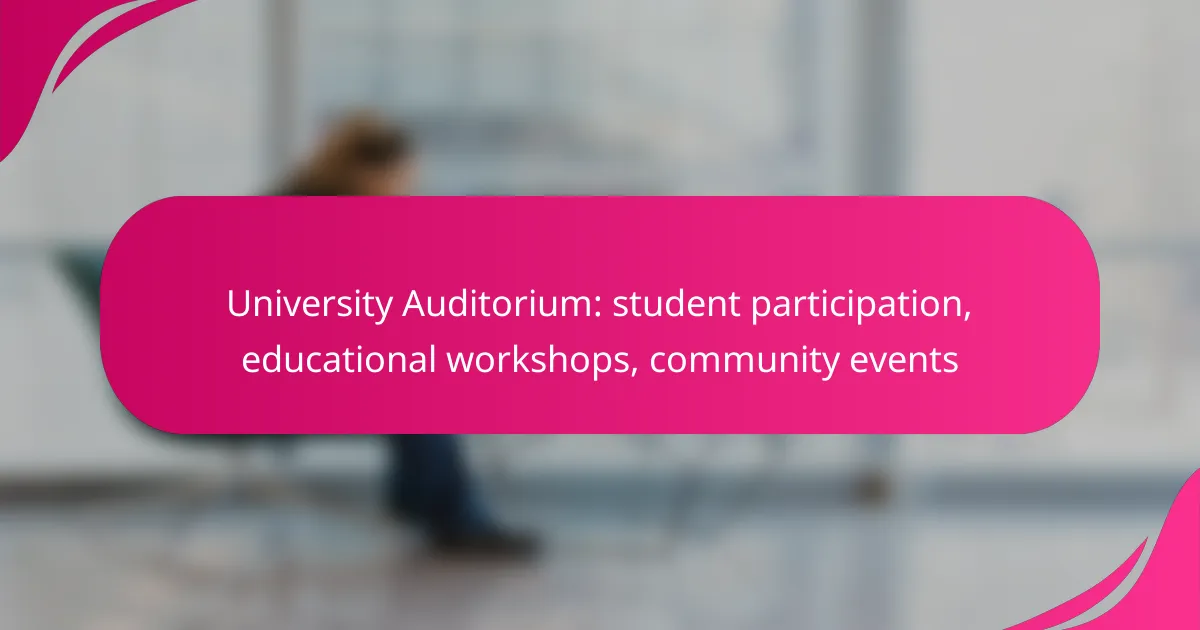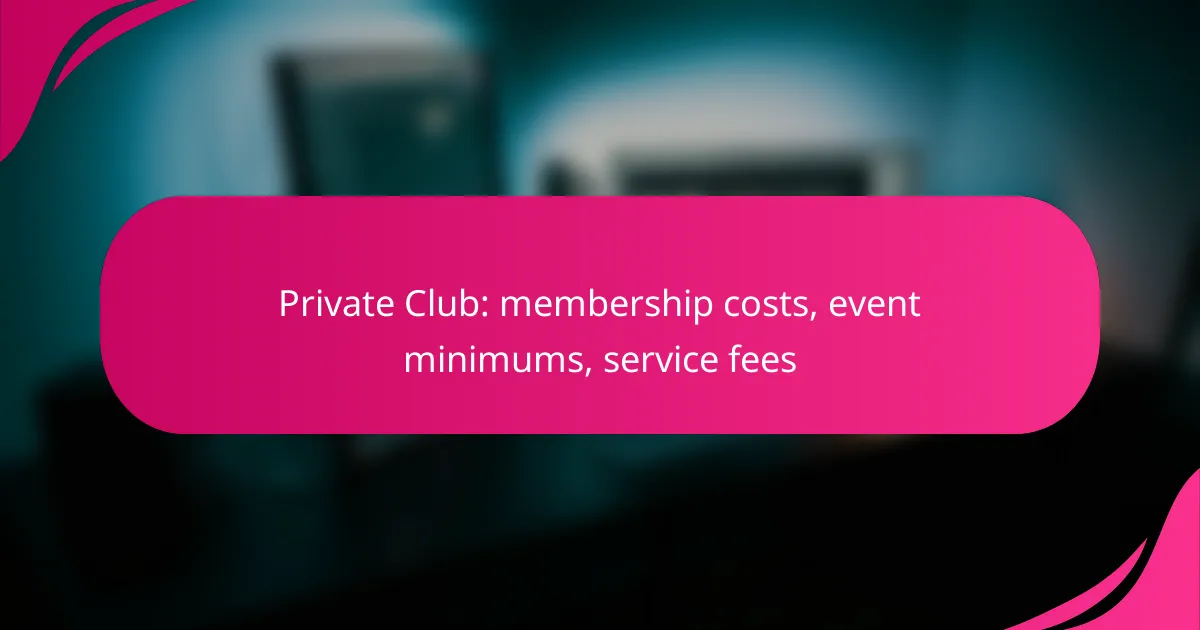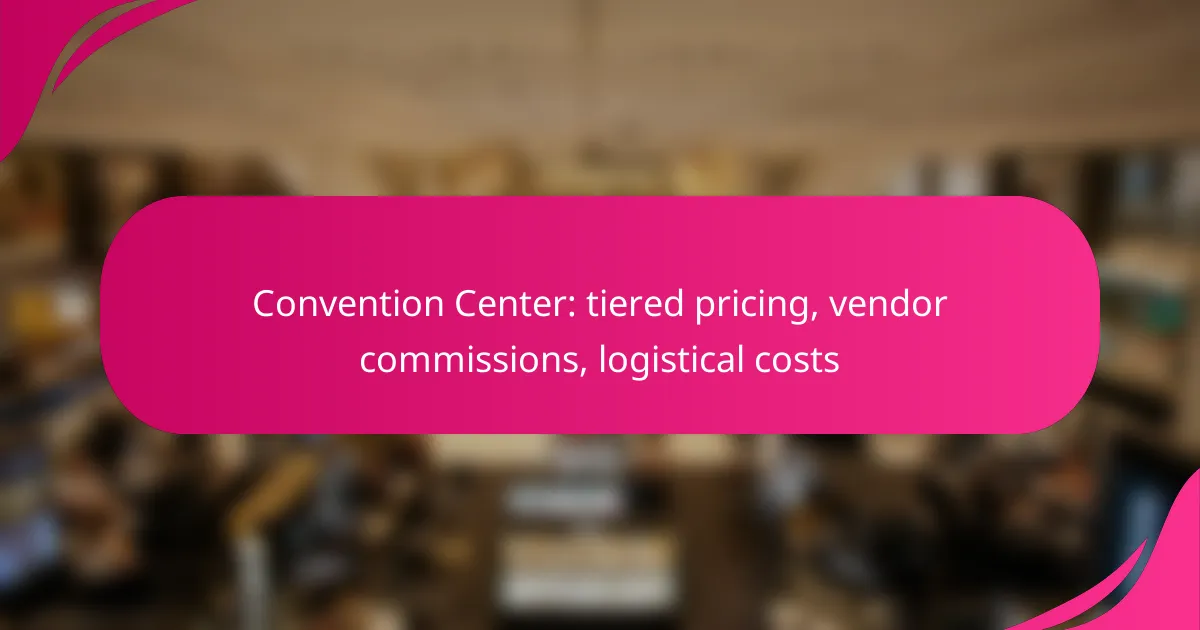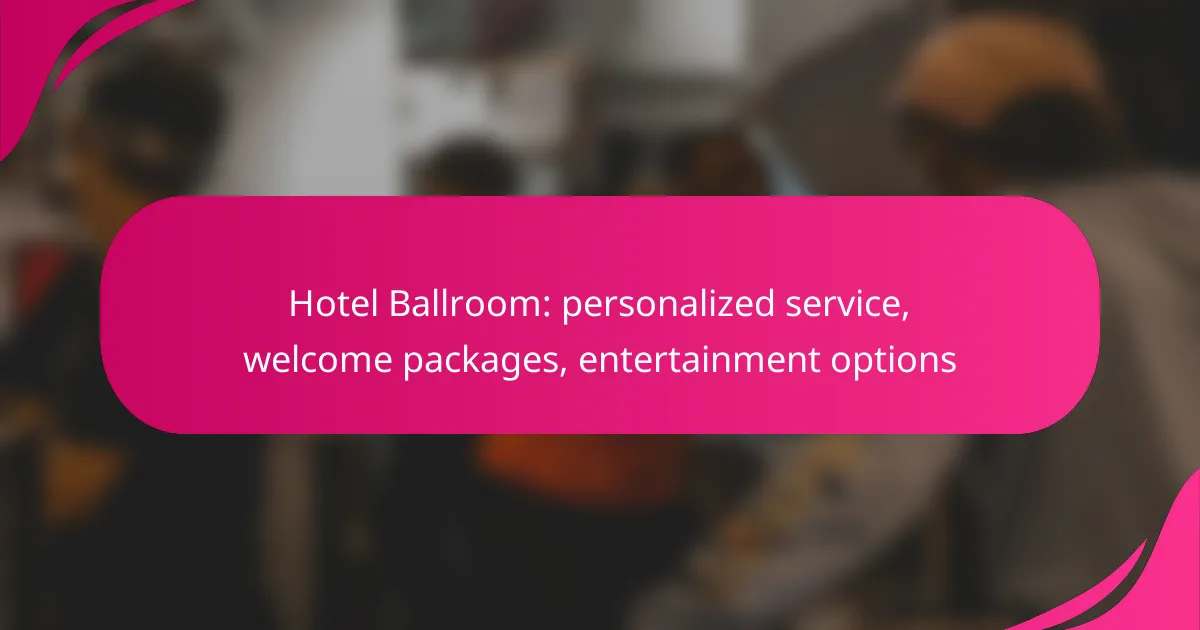The university auditorium is a dynamic space that encourages student participation through various avenues, including committee involvement and volunteering. It hosts a range of educational workshops aimed at enhancing learning and collaboration, while also serving as a venue for community events that foster engagement and connection. This multifunctional environment not only enriches the student experience but also strengthens ties with the local community.
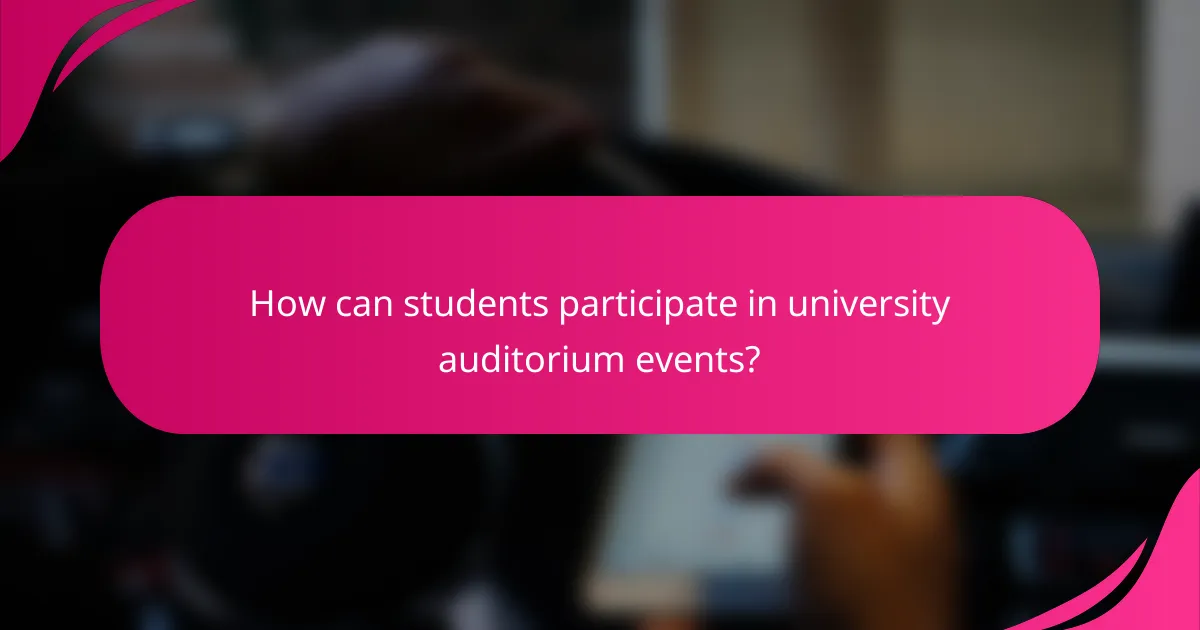
How can students participate in university auditorium events?
Students can engage in university auditorium events through various avenues such as joining committees, volunteering, and providing feedback. These opportunities allow students to contribute to the planning and execution of events, enhancing their educational experience and fostering community involvement.
Student committees
Joining student committees is a proactive way for students to participate in university auditorium events. These committees often focus on specific areas such as event planning, marketing, or logistics, allowing students to develop relevant skills while contributing to the university community.
Students interested in joining a committee should check with their student affairs office or the auditorium management for available positions. Typically, committees meet regularly to discuss upcoming events and collaborate on strategies to improve student engagement.
Volunteer opportunities
Volunteering at university auditorium events is another excellent way for students to get involved. Volunteers may assist with tasks such as setting up equipment, managing guest registration, or helping with event promotion. This hands-on experience can be valuable for personal development and networking.
Students can usually sign up for volunteer roles through the university’s event management system or by contacting the auditorium staff directly. It’s advisable to express interest early, as spots may fill quickly, especially for popular events.
Feedback sessions
Participating in feedback sessions allows students to voice their opinions on past events and suggest improvements for future ones. These sessions are typically organized after major events and provide a platform for students to share their experiences and ideas.
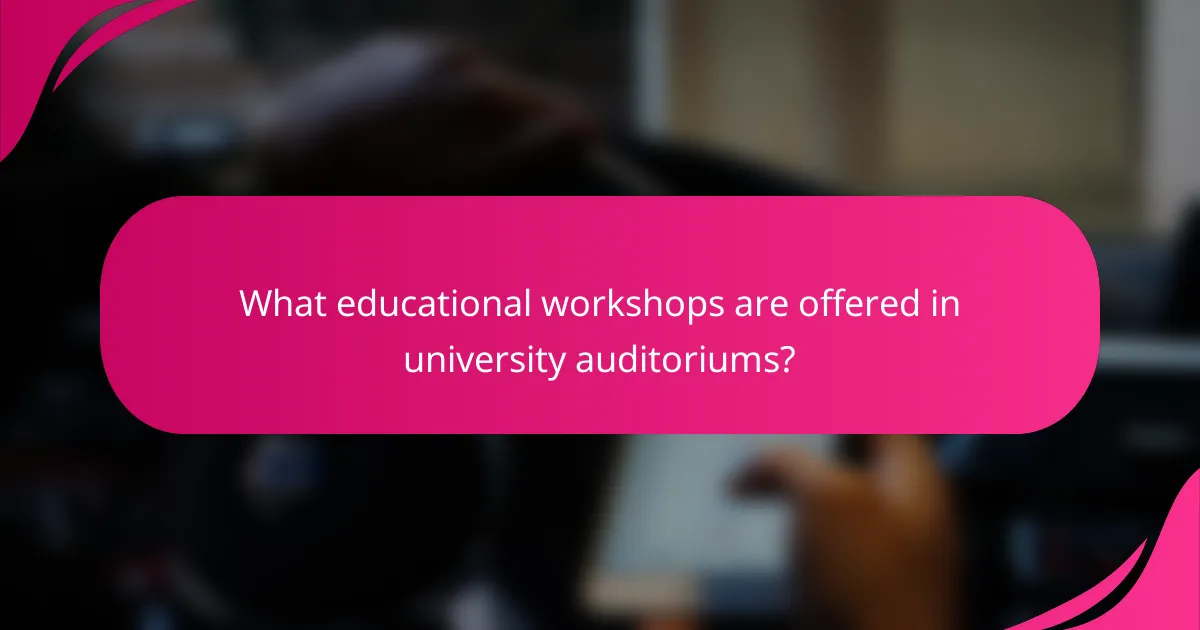
What educational workshops are offered in university auditoriums?
University auditoriums host a variety of educational workshops designed to enhance student learning and engagement. These workshops often focus on practical skills, collaboration, and knowledge sharing, providing students with valuable experiences outside traditional classroom settings.
Guest lectures
Guest lectures are a popular component of educational workshops in university auditoriums. These sessions feature experts from various fields who share their insights and experiences, enriching the academic environment. Students have the opportunity to engage directly with professionals, ask questions, and gain perspectives that complement their studies.
Typically, guest lectures are scheduled throughout the semester and can cover a wide range of topics, from industry trends to research breakthroughs. Universities often invite alumni or local business leaders to foster connections between students and potential career paths.
Skill development sessions
Skill development sessions focus on enhancing specific competencies that are essential for students’ future careers. These workshops may cover areas such as public speaking, project management, or technical skills like coding and data analysis. By participating, students can build a portfolio of skills that are attractive to employers.
Workshops are usually interactive, allowing students to practice their skills in real-time. For example, a public speaking workshop might include practice presentations with peer feedback, helping students improve their delivery and confidence.
Collaborative projects
Collaborative projects in university auditoriums encourage teamwork and problem-solving among students. These workshops often involve group activities where students work together to tackle real-world challenges or case studies. This hands-on approach fosters a sense of community and enhances learning through peer interaction.
These projects can vary in duration and complexity, from short brainstorming sessions to multi-week initiatives. Students are typically encouraged to present their findings or solutions at the end, which helps develop their presentation skills and reinforces their learning experience.
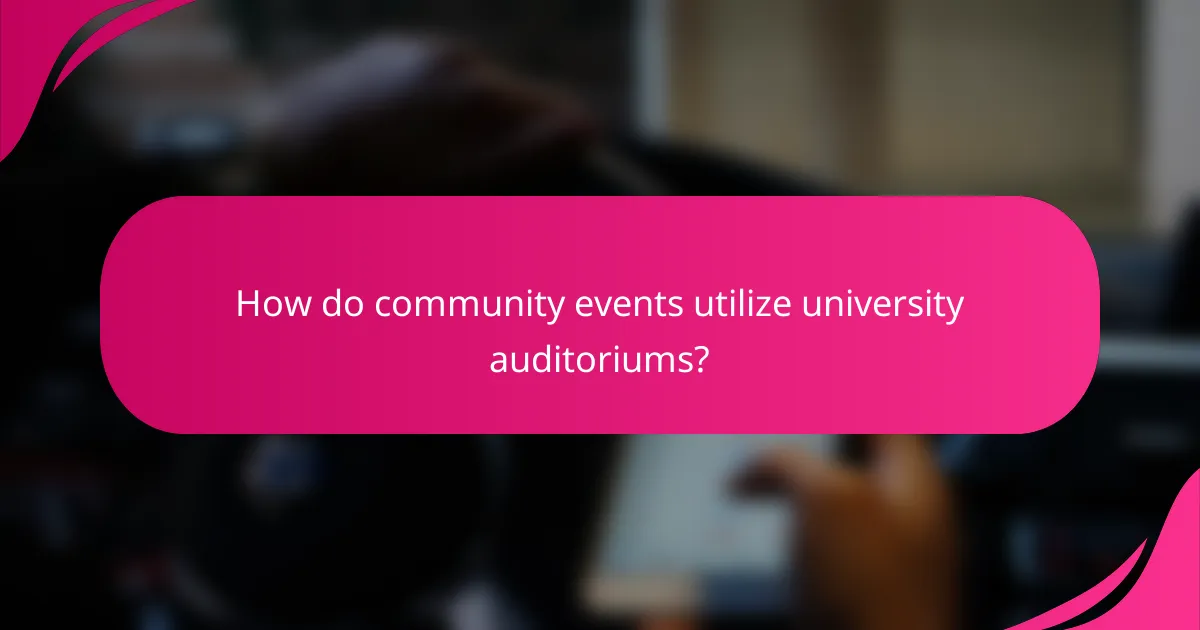
How do community events utilize university auditoriums?
University auditoriums serve as versatile venues for community events, providing space for gatherings that foster engagement and collaboration. These facilities are often equipped with necessary technology and seating arrangements, making them ideal for various activities that benefit both students and the local community.
Local art exhibitions
Local art exhibitions in university auditoriums showcase the talents of regional artists while enriching the cultural landscape of the campus. These events often feature a mix of visual arts, including paintings, sculptures, and multimedia installations, allowing students and community members to experience diverse artistic expressions.
To organize an art exhibition, consider collaborating with local artists and art organizations. Ensure that the auditorium has adequate lighting and display options to enhance the artwork’s visibility. Promoting the event through social media and local channels can help attract a larger audience.
Public forums
Public forums held in university auditoriums provide a platform for open discussions on pressing community issues. These events encourage participation from students, faculty, and local residents, fostering dialogue and collaboration on topics such as education, health, and social justice.
When planning a public forum, select a relevant theme and invite knowledgeable speakers to facilitate discussions. Ensure that the auditorium is accessible to all participants and consider providing resources, such as handouts or digital materials, to enhance the experience. Engaging the audience through Q&A sessions can also lead to more dynamic conversations.
Charity fundraisers
Charity fundraisers in university auditoriums can effectively raise awareness and funds for various causes. These events often include activities like auctions, performances, and guest speakers, drawing in attendees from both the university and the surrounding community.
To maximize the impact of a charity fundraiser, set clear goals for the amount of money to be raised and promote the event well in advance. Collaborating with local businesses for sponsorships or donations can enhance the event’s offerings. Additionally, creating an engaging program that includes entertainment can encourage higher attendance and donations.
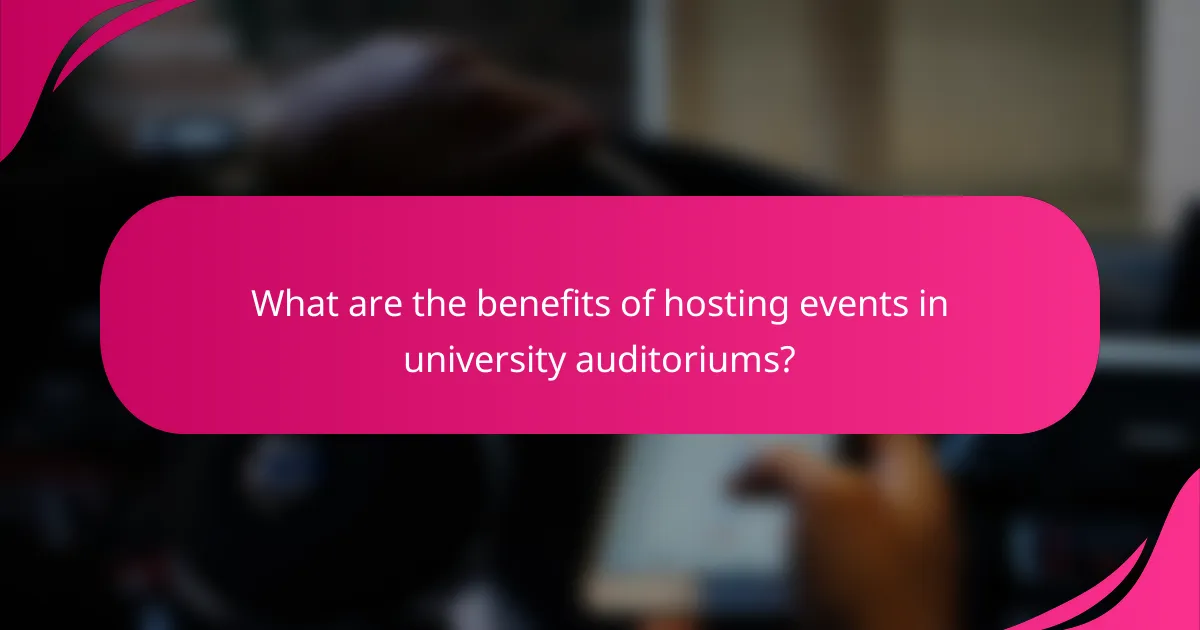
What are the benefits of hosting events in university auditoriums?
Hosting events in university auditoriums offers significant advantages, including increased visibility for organizations and access to essential resources. These venues create a conducive environment for educational workshops, student participation, and community events, fostering engagement and collaboration.
Enhanced visibility
University auditoriums provide a prominent platform for events, making them easily accessible to students and faculty. This visibility can lead to higher attendance rates, as well as greater awareness of the hosting organization or initiative.
To maximize visibility, consider promoting the event through campus-wide emails, social media, and flyers in high-traffic areas. Engaging local media can also help attract a broader audience.
Access to resources
Utilizing university auditoriums grants access to various resources, such as audio-visual equipment, seating arrangements, and technical support. These facilities are often equipped with the latest technology, which can enhance the overall experience for attendees.
When planning an event, check with the university’s event management team to understand what resources are available and how to reserve them. This can help streamline logistics and ensure a smooth execution.
Networking opportunities
Events held in university auditoriums facilitate networking among students, faculty, and community members. These gatherings provide a unique chance for individuals to connect, share ideas, and collaborate on future projects.
Encourage interaction by incorporating activities such as breakout sessions or informal meet-and-greets. Providing refreshments can also create a welcoming atmosphere that fosters conversation and relationship-building.
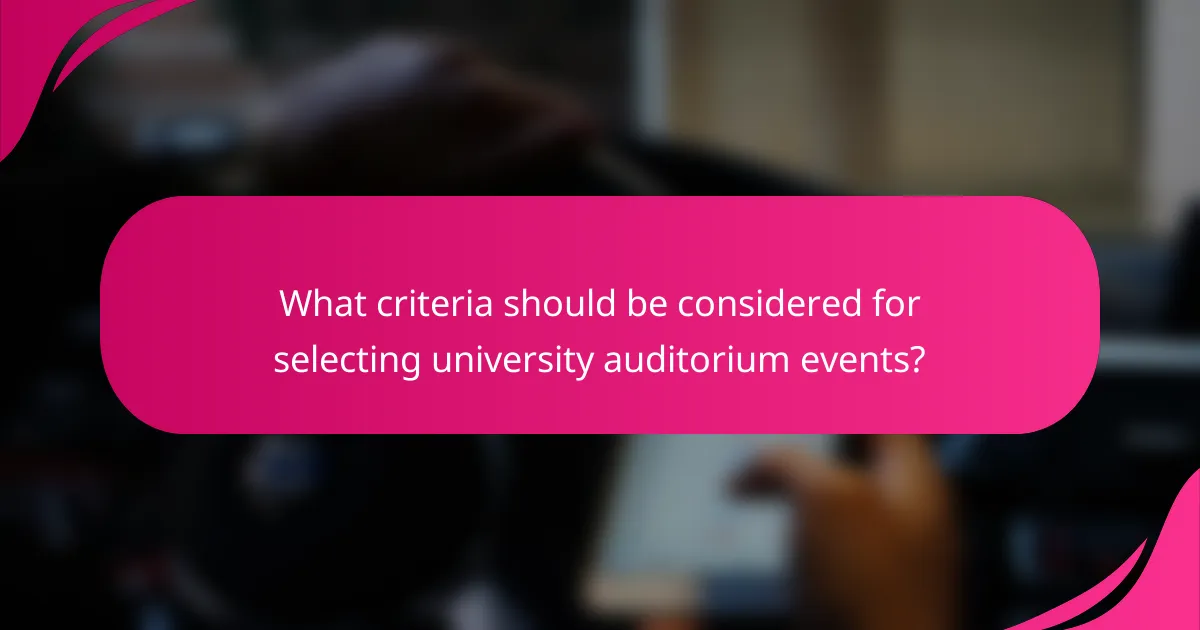
What criteria should be considered for selecting university auditorium events?
When selecting events for a university auditorium, it’s essential to consider audience engagement, event relevance, and logistical requirements. These criteria ensure that the events are well-attended, meaningful, and feasible to execute.
Audience engagement
Audience engagement is crucial for the success of any event held in a university auditorium. Events should be designed to actively involve attendees, whether through interactive workshops, Q&A sessions, or networking opportunities. Engaging formats can significantly enhance participation and satisfaction.
To gauge potential engagement, consider the interests and demographics of the student body. Surveys or focus groups can help identify what types of events would attract a larger audience. Aim for events that encourage participation from diverse groups within the university community.
Event relevance
Event relevance ensures that the topics and activities resonate with the audience’s needs and interests. Workshops, lectures, or community events should align with current educational trends, student interests, or local issues. This connection fosters a sense of purpose and importance among attendees.
To determine relevance, review past events and their attendance rates. Look for patterns in what has drawn crowds before, and consider collaborating with student organizations to co-host events that reflect their priorities. This approach can enhance the perceived value of the event.
Logistical requirements
Logistical requirements encompass the practical aspects of hosting an event, including venue capacity, equipment needs, and scheduling. Ensure that the auditorium can accommodate the expected audience size and that necessary technology, such as projectors or sound systems, is available and functioning.
Additionally, consider the timing of the event. Avoid scheduling during peak academic periods or major campus events that might compete for attention. Create a checklist of logistical needs, including seating arrangements, accessibility options, and catering if applicable, to streamline the planning process.
